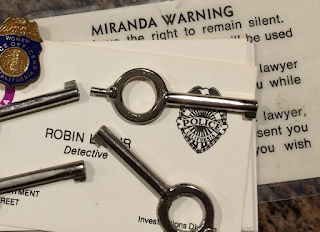“Memories…”
Not sure why, but the word itself evokes Barbara Streisand singing her iconic song, “The Way We Were.” So I’m humming the tune and start singing aloud (while ignoring my husband’s odd look): “Memories… like the shadows of my mind…” That, of course, leads me to thinking about copyright law for including the lyrics “shadows of my mind,” but I’m willing to brave it as I’m certain that when taken out of context the “shadows” mentioned by the song writer surely has a double-meaning. Naturally, I need to look up the song to see if I’m correct.
Imagine my surprise when I look up the lyrics (thank you, internet) and discover that my own memories of this song are faulty and “shadows” doesn’t appear anywhere. The first line actually reads: “…light the corners” of [her] mind. There goes my whole theory on the meaning-behind-the-meaning.
I’m not surprised that I’ve remembered the song wrong. My mistake started with hearing “like” instead of “light.” And hey, my whole life is filled with songs I’ve sung wrong over the years (a search of one of my Facebook threads will prove that I’m not the only one this has happened to). But the point is that the one mistake of hearing/remembering that second word wrong possibly skewed my memory of what (I thought) followed.
Memory is fragile. This is a proven fact. But sometimes the circumstances of the crime can alter the perception of that memory. The witness can be telling the truth, and yet not be telling the truth. The memory is very real to them. It’s an altered perception. I once witnessed a fistfight, while on patrol. I was on the ground floor, looking up at a balcony where two men were arguing and got in a tussle. One of the subjects went running, the other standing there, bleeding from his back. My victim hadn’t even realized he was stabbed. There was a knife on the ground that the injured man had dropped. But the suspect also had a knife, which he took when he fled. I witnessed the entire crime and never saw either knife. Never saw the stabbing. Wouldn’t have even known had I not gone up the stairs. Now imagine this case goes to trial. (It didn’t. Suspect pled.) I’d have to tesify that I never saw a knife. The defense would be all over this.
A good investigator knows that perception can alter memories, and will keep investigating, because it could make or break a case. But time can also erode memories—even a short amount of time. (Imagine being a witness in a case that takes months and months to get to trial. Unfortunately, this happens far too often.) In forensic art, I’ve had to sit down with witnesses usually right after a traumatic crime such as kidnapping or murder, trying to get a description of the suspect. But I’ve also had to do this days, months, even years later. I have to carefully query my witness so as not to suggest something, altering what they remember. (I’ve had this happen in a case. Not my questioning, but that by another in the room, telling the witness that what she saw was wrong. After that horrid experience, I learned that if an investigator or support person must be in the room, they don’t get to talk. If they want anything asked, they have to pass it to me on a note, or we have to leave the room.)
 |
| Add caption |
The courts have recognized that memories can be changed by the way a witness is questioned, which is why it’s always important to ask open-ended questions instead of leading questions. Think of the televised court cases fictional or real, where the attorney is grilling the witness, and the other side shouts, “Objection! Leading!” Well, now you know the reason why. In fact, while I was writing this, my husband and I saw a commercial on TV where someone was looking at a photo album, and the word “Memories” flashed on the screen. I mentioned this blog and that the word evokes Barbara Streisand’s song, and then told him my mistaken first line of lyrics. Normally my husband has an amazing song/lyric retention. But because I suggested the wrong lyrics to him first, “like the shadows of my mind,” he couldn’t come up with the actual lyrics right away. He eventually said, “Something about corners, wasn’t it?”
I really like my version of the song better. It’d make a great book title: The Shadows of my Mind. Honestly, when I sat down to write this blog, I was going to wax poetic about the times I used memory as a plot device. I have a character with eidetic memory caused by a childhood accident in THE KILL ORDER. In the Sam and Remi Fargo adventures that I’m co-writing with Clive Cussler, Remi Fargo has a “near photographic” memory (which helps when you need a character to recall obscure facts). But I find the subject of our real memories far more fascinating. How is it we hear something wrong, like the lyrics of a song, and forever more sing it wrong, even though we’re singing along with the actual, real lyrics? We have, essentially, altered our own memories and perceptions of what is actually occurring in that very moment while the song is playing. We reinforce it wrong, every time we sing it, quite often without even realizing what we’re doing.

Come to think of it, that’s one of the reasons why most police departments insist on police officers reading a suspect his/her Miranda Rights from a card. Of course they know it by heart–they’ve recited it a bazillion times throughout the course of their careers. But, knowing what you know about misperception and fragility of memory, imagine the officer mistakenly reciting it wrong that one time in court. The defense would pounce on that mistake and bring up the whole memory-is-fragile-thing, and if the officer forgot or added a word there on the stand, how do we know the rest of his testimony is accurate? (Never mind the whole other angle of how can the suspect possibly know what his rights really are if the officer screwed up on reciting them. This has actually been used as a defense. In one case I know of, the prosecution defended the mistake by using the suspect’s vast criminal record and the number of times he’d been told his rights, leading to the conclusion that he knew them better than the rookie officer who misquoted them.)

Come to think of it, that’s one of the reasons why most police departments insist on police officers reading a suspect his/her Miranda Rights from a card. Of course they know it by heart–they’ve recited it a bazillion times throughout the course of their careers. But, knowing what you know about misperception and fragility of memory, imagine the officer mistakenly reciting it wrong that one time in court. The defense would pounce on that mistake and bring up the whole memory-is-fragile-thing, and if the officer forgot or added a word there on the stand, how do we know the rest of his testimony is accurate? (Never mind the whole other angle of how can the suspect possibly know what his rights really are if the officer screwed up on reciting them. This has actually been used as a defense. In one case I know of, the prosecution defended the mistake by using the suspect’s vast criminal record and the number of times he’d been told his rights, leading to the conclusion that he knew them better than the rookie officer who misquoted them.)
So, Rogue Readers, the real burning question is: What songs have you altered every time you sing them because you’ve heard those lyrics wrong? Really, though, have you ever experienced having a completely different memory of something you’re so sure happened exactly one way, only to find it was completely off?

















































Great post, Robin — you are SO right about memories often becoming fragile things. I recall when I was called to testify at a trial, I had sworn to "tell the truth," of course – and so I honestly had to say, "I do not recall," — which was absolutely true….and I was (thankfully) dismissed by the judge. As for songs — I've sung in barbershop quartets for years, rehearsed and competed on stage. One time I actually forgot one of the words during a competition — and I saw the look of astonishment on one of the judge's faces. (We lost a point on that one). And so it goes. Thanks for a very thoughtful blog.
What a fascinating post, Robin. You've reminded me of one of my all-time favorite quotes: "Certainty is based on flimsier evidence than most of us realize." — Ellen J Lnager, Harvard psychologist & author of MINDFULNESS.
Ouch! And only one word? Hope it wasn't too disastrous for the team. At least for me, there aren't too many witnesses to my butchering of lyrics.
What a great quote, Gayle! (Not sure I want my husband to see it… Then again, there are times I'd like to point that out to him!)
Makes me think of the Shoot Don't Shoot Simulator at Writers Police Academy. We were taught how to approach the scene, then shown different scenarios where we confronted armed and unarmed suspects, etc. I had a "suspect" point a gun at me (and my partner). I ducked for cover and fired , stopping once the suspect was down–as instructed. My partner also fired. When they evaluated us, they asked us how many shots we fired. I thought five, maybe. My partner said less. I fired three shots. My partner emptied his gun–twelve shots. If you asked me what the suspect looked like, I'm not sure I could tell you. Crazy what adrenaline or stress will do to your memory.
Exactly, Chris! And why it's so important to have immediate debriefings on important events–especially in something as important as a police shooting. (And yet another good reason to have body cameras. What we see and what really happened can be two different things.) Also, a good experience to realize what adrenaline rushes can do to your memories!
I can attest to fragile memories—my friends insist that we saw the play 1776 in grade school. Now, I LOVE theater, and any outing was a big deal for me. But I have no recollection of this. I saw the movie only a few years ago and nothing about it was familiar.
I love the quote from a great little gem of a movie, Eve’s Bayou: Memory changes with the light.
Song lyrics? In Gordon Lightfoot’s song I always thought he was saying “If you could read my mind, babe, what a tale a fox could tell.”
‘My thoughts ‘ makes a lot more sense. I doubt a fox would care what was on his mind.
‘Love’, not ‘babe’.
Great blog and topic, Robin! The lyrics I incorrectly recall and now, purposely sing-“One ton tomatoe. Oh, she’s a one ton tomatoe…”
So true about leading questions. Think we’ve all unfortunately had similar experiences. I generally had my suspect and witnesses tell the whole story without interruption, from beginning to end. Then I’d ask them to write it all down and then I’d ask clarifying questions from the end to the beginning. I found when people wrote, they oftentimes recalled more detail.
Although, I did a six-pack (photo line-up) once and all six people interviewed selected a different photo to identify the single suspect.
Ha! Double whammy, there! But yes, what a tale a fox could tell! The way my mind works, I'd be justifying the meaning of that while singing, like they were out in the wilds, or foxes are wily, therefore…
Photo lineups! Don't get me started. Too late. I once had to try to pick out someone from a lineup. It wasn't easy. We bought a veh. from a guy then sold it, only to find out that the guy we bought it from had rolled back the odometer, and the people we sold it to took it to the very mechanic shop of the original owners, so had record of the 100k missing miles. Because the crime wasn't seriously imprinted on my brain by virtue of me not even realizing we'd been victims, I found the process very difficult to even remember what he looked like as the DMV inv was showing me the six photos!
Thanks, Robin, for this timely post. I'm in the middle of my WIP where a character in a care center has serious memory problems re her daughter's murder.
You're very welcome, Carole. I hope you were able to glean some good info that helps!
A lot of variables come into play with memory, too. I was on graveyards several years ago when I witnessed something that eventually led to an IA from another agency. When interviewed, the detective asked me several questions I couldn't answer–I was fatigued when the incident occurred and had taken melatonin (yeah, I know that's not supposed to affect memory but I had a complete blank-out). Believe me, this guy deserved days on the beach but I couldn't be the one to truthfully force the issue. Fatigue is a big issue for shift work and memory problems.
Very good point. Too many variables. Thanks for commenting!